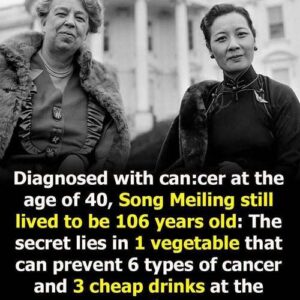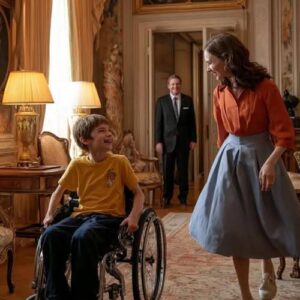A Still Summer Day and a Quiet Act of Heroism
It was one of those suffocating summer days when the air felt like a wool blanket. The entire day dragged along, sluggish and heavy, and even the wind seemed to have given up. Most people stayed indoors to avoid the heat. Outside the Maplewood Shopping Plaza, the asphalt bubbled, the sidewalks shimmered, and the parking lot was eerily silent.
Lucas Reynolds, 23, had just finished his shift at a small electronics repair shop on the edge of town. He worked full-time and took night classes in computer engineering. His life was a steady loop: home, work, school, repeat.
As he crossed the vast, sun-scorched lot with his backpack slung over one shoulder, he noticed only a few cars baking under the relentless sun—most of the shops were closed for renovations. Then, he heard something.
A soft, almost inaudible sound. A whimper.
He froze. Then heard it again.
Following the noise, Lucas approached a black SUV parked in a far corner. The windows were tinted, but as he got closer, he could make out a small figure in the backseat.
A child.
Lucas’s heart dropped. He peered through the glass. A baby—barely a year old—was strapped in a car seat. The child’s face was flushed, lips parched, hair plastered with sweat. His tiny chest rose with shallow, strained breaths. He was too weak to cry.
“Hey! Can you hear me?” Lucas shouted, banging on the window. No response. The doors were locked.
He scanned the lot.
No sign of the parents. Just heat, silence, and a child trapped in a metal oven.
Lucas dialed 911 but glanced again at the baby—his eyes fluttering, starting to roll back.
There was no time.
Lucas grabbed a large landscaping rock from a nearby flowerbed. “I’m sorry, little guy,” he muttered—and smashed the back passenger window. The glass shattered with a sharp crack. Carefully avoiding the shards, he reached in and unbuckled the child. The baby’s skin was dangerously hot.
Clutching the child to his chest, Lucas sprinted toward an urgent care clinic just down the street. He could feel the baby’s faint groans as he ran.
“Help!” Lucas burst through the clinic doors, breathless. “A baby’s been locked in a hot car—he’s overheating!”
The nurses moved instantly. One took the baby and rushed to the back. Lucas collapsed into a waiting room chair, sweating and trembling. He didn’t even realize he was crying until a receptionist gently handed him a tissue.
“He’s going to be okay,” she said softly. “You did the right thing.”
After about fifteen tense minutes, a nurse returned with an update. The toddler had been severely dehydrated and was close to heatstroke—but they had stabilized him. A few more minutes, she said, and it could’ve been too late.
Lucas exhaled in relief.
Then, just as things began to settle, chaos returned.
A woman in her early 30s stormed in, her expression furious—not frightened. “Where is he? Where’s my son?”
A nurse guided her to the back. She returned moments later, heading straight for Lucas.
“You!” she snapped. “You broke my window!”
Lucas blinked. “Ma’am, your baby—he was—he could’ve—”
“I was gone for five minutes!” she shouted. “You had no right! You’ll pay for that window—I’m calling the police!”
The waiting room fell silent.
Lucas sat, stunned. He had expected gratitude, maybe relief. But all she saw was shattered glass—not the child nearly lost to the heat.
A nurse stepped forward. “Ma’am, your son was in serious condition. This young man probably saved his life.”
The woman—Karen Ellis, as it turned out—was already dialing her phone.
Lucas sat frozen as she reported “a young man vandalizing her vehicle and touching her child.” Two police officers arrived soon after.
Officer Grant spoke with Lucas first and asked him to explain what had happened.
Lucas recounted the faint cries, the heat, the smashed glass, the sprint to the clinic. The officer listened closely and then consulted the medical team, who confirmed the child had been dangerously close to heatstroke. Lucas’s quick thinking had likely averted a tragedy.
Then the officers turned to Karen.
“Ma’am,” Officer Grant said calmly, “leaving a child unattended in a locked vehicle—especially in this heat—is extremely dangerous. You’re fortunate someone responded when they did.”
“But I was only gone a few minutes,” Karen sputtered. “I just ran into the pharmacy—”
“You could be facing child endangerment charges,” the officer said. “We’ll be filing a report. Right now, your focus should be on your son’s recovery.”
Lucas stood silently, unsure whether to feel vindicated or even worse.
The police took statements from everyone involved. Karen received a formal warning and was allowed to leave with her child.
Officer Grant turned to Lucas and said, “You did the right thing. Many people would have walked away. You didn’t.”
But Lucas wasn’t looking for praise. Shaking his head, he replied, “I just couldn’t leave him there.”
The Story Goes Viral
Lucas didn’t know that a bystander had snapped a photo of him outside the clinic, holding the baby in his arms. That image—a young man in a sweat-soaked T-shirt cradling an unconscious child—was posted online with the caption:
“This man broke a car window to save a baby from heatstroke. While the mother yelled about the damage, he calmly waited for help. A real hero.”
The post exploded overnight.
By morning, local news stations were calling him the “Quiet Hero of Maplewood.” Social media was flooded with messages of support, admiration, and thanks.
Lucas ignored most of the messages. The attention felt strange, almost overwhelming.
Then someone knocked on his apartment door.
A man in a suit stood holding a small box. “Mr. Reynolds? I’m with the Hawkins Child Safety Foundation. We heard your story. You’ve been selected for our annual Community Hero Award.”
Lucas blinked. “I didn’t do it for recognition.”
The man smiled. “That’s exactly why you deserve it.”
A Gentle Resolution
In the weeks that followed, Lucas agreed—reluctantly—to speak at a local elementary school. He talked about kindness, bravery, and doing the right thing, even when it’s hard.
He kept it simple.
“I saw someone who needed help,” he told the kids. “So I helped. That’s it.”
One boy raised his hand. “Were you scared?”
Lucas smiled. “Yeah. But being scared doesn’t mean you don’t do something. Sometimes, it means you have to.”
Though not charged, Karen Ellis was ordered to take parenting classes and perform community service. Her son made a full recovery.
Eventually, she sent Lucas a short handwritten note.
I made a mistake. Thank you for saving my son.
Lucas read it once and tucked it in a drawer. He didn’t need thanks. He didn’t need headlines.
All he knew was that on a still summer day, in a quiet parking lot, he had heard a child’s cry—and answered it.
And that, he believed, was enough.





